
Invited by G Adventures and Turkish Airlines to visit Bhutan, ITTN’s News & Features Editor Neil Steedman discovered that it is a wonderful country that should be on everyone’s wish list.
G Adventures offers three escorted tours in Bhutan, including an 11-day ‘Active’ Druk Path trek and a 10-day ‘Classic’ Bhutan Adventure, but… being “somewhat unfit”(!)… I chose the 10-day ‘National Geographic Journeys with G Adventures’ Wonders of Bhutan tour, which has a lower average physical rating of 3, an upgraded service level of quality accommodations, and exclusive inclusions such as visiting a primary school class, meeting a Khenpo (Buddhist lama), and a cookery lesson – more my style!
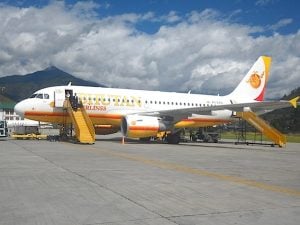
Nevertheless, I did find the going tough at times, particularly those last few steps up to remote monasteries and nunneries, but I am pleased to report that I reached them all, except for the world-famous Taktsang Monastery that clings to a cliff face 900 metres above the valley floor – but more of that later.
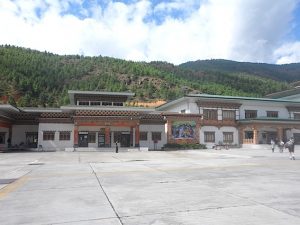
However, it should be said that it is perfectly possible to arrange an interesting tour of Bhutan that does not involve any strenuous activity, even though this will mean missing out on a few places of interest.
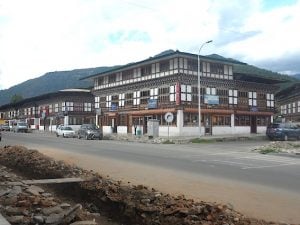
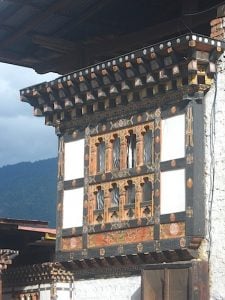
By the way, if your clients are seasoned trekkers who want to really test their endurance, advise them that the Lunana Snowman Trek, possible from May to October, is said to be the hardest trek in the world, with 12 passes between 4,500 and 5,300 metres and overnight stays at between 3,700 and 5,100 metres. (I won’t be doing that any time soon!)
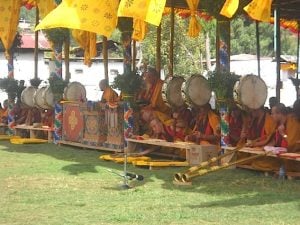
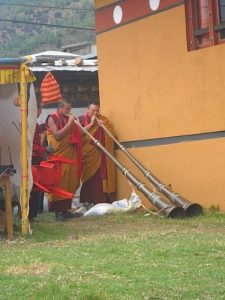
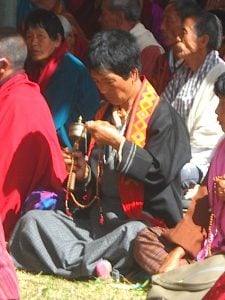
Getting There
Paro, Bhutan’s one international airport, is only served by Royal Bhutan Airlines (Drukair), which operates flights to/from 10 airports: Kathmandu in Nepal, six in India including Delhi, Mumbai and Kolkata, Dhaka in Bangladesh, Bangkok in Thailand, and Singapore. All those seven named airports are served by Turkish Airlines from Dublin via Istanbul so, as your clients may well be combining Bhutan with other nearby countries, TK is a great airline to book with because your clients can easily fly into Bhutan from one airport and connect with their return flight from another.
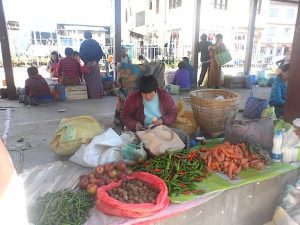
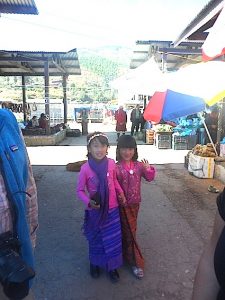
There are 12 Wonders of Bhutan tours next year, from 17th March to 10th November, and each has a maximum of 15 participants, so it is important to book your clients early. This is even more important in order to get the Drukair flights into and out of Bhutan that they prefer, because these seats can fill even earlier.
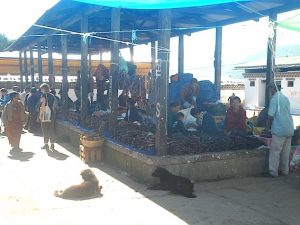
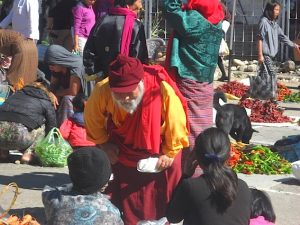
Do note that Drukair advises that passengers should maintain a minimum of 24 hours connection time to avoid misconnections due to weather.
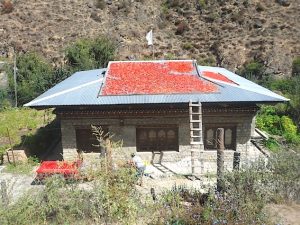
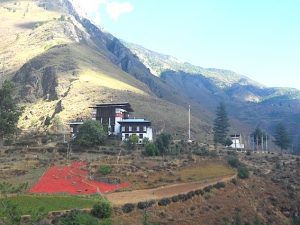
Jewel of the Himalayas
Bhutan is world-famous for being the only country to date (plus one region in Brazil, I was told) to measure its wellbeing in Gross National Happiness, as opposed to Gross National Product. It is also a carbon negative country and the near 700,000 population are almost all Buddhists who follow Vajrayana, the complete teachings taught by Buddha Shakyamuni in India and later preserved in Tibet.
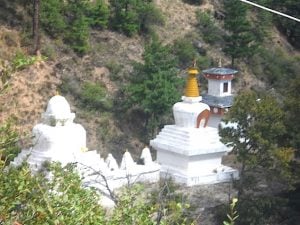
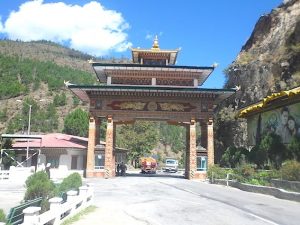
The ‘Jewel of the Himalayas’ is proud of these qualities and since tourism began in 1974 the Government has adopted a cautious approach to tourism growth and development. Initially a strict limit was placed on the number of international visitors, but there are now no restrictions on numbers – although everyone must book with a Bhutanese tour operator and pay a minimum of US$250 per day for an ‘all inclusive package tour’ that includes accommodation in tourist standard hotels and lodges, meals, transportation, guides and museum fees.
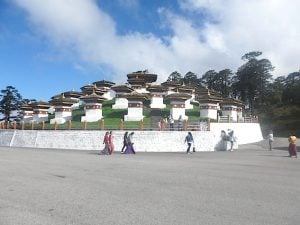
The cost of the Wonders of Bhutan tours in 2018 is higher, at US$3,749 (€3,222) for the 10 days, due to their higher accommodation standards and extra inclusions – and is well worth it for the experience of a lifetime.
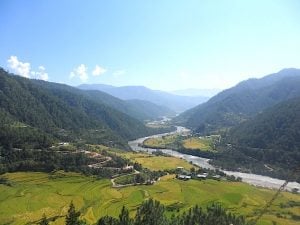
Three Practicalities
A visa is required for Bhutan and a visa clearance letter MUST be shown at check-in for the Drukair flight to Paro, otherwise your client will be refused boarding. However, G Adventures takes care of the application and you can advise your clients not to panic because the letter from the Department of Immigration of Bhutan will only be issued to them about eight to 10 days prior to the flight date.
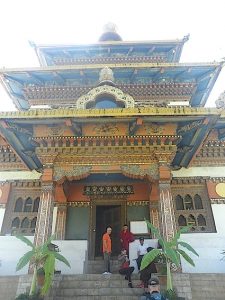
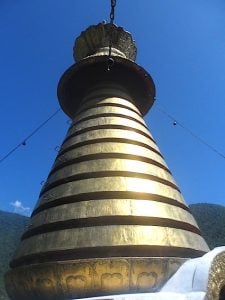
You should advise your clients that only two places in Bhutan, Paro and the capital Thimphu, have international ATMs and that American Express, Mastercard and Visa cards may only be accepted by hotels and shops catering to tourists, so they should organise their currency accordingly. The currency is the Ngultrum (Nu), which maintains parity with the Indian Rupee (INR).
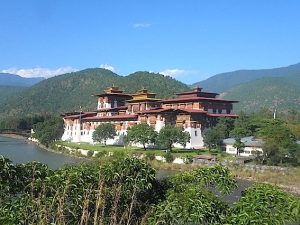
Hunting and fishing are banned in Bhutan and farm animals are not killed (they either die naturally or through accident), so all meat and fish is imported from India and, to be honest, they don’t taste great, so suggest that your clients go vegetarian while in Bhutan, even if they are carnivores. The homegrown vegetables are excellent (particularly potatoes) and if your clients are into chillies then they are really on a winner – because Bhutan’s national dish Ema Datshi, chillies and cheese, will be included in almost every breakfast, lunch and dinner buffet.
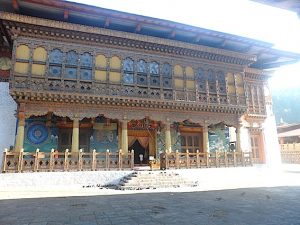
Paro and the Punakha Valley
After an informative induction talk by our guide, Tobgay, on the evening of our arrival day, we visited Paro then drove out into the Punakha Valley, crossing the Dochula Pass en route.
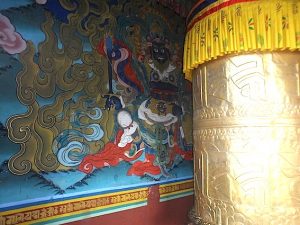
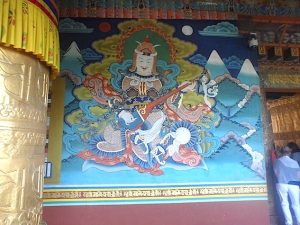
Paro is pretty much a one-street town of general stores and tourist shops but does provide a good introduction to the traditional and beautiful Bhutanese architecture, which is prevalent all over the country and in all types of buildings. There was a Buddhist festival taking place in Paro, where there is also a market every Sunday.
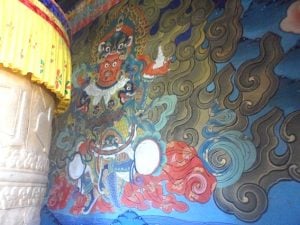
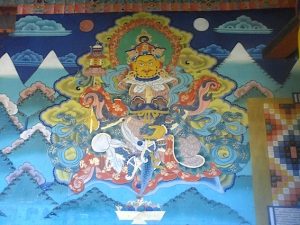
Highlights in the Punakha Valley include the views of the Himalayas and steep hillsides with rice terraces, Punakha Dzong (or Fort), Chime Lhakhang, Wangdue Phodrang, and Khamsum Yueley Chorten. The accompanying photos tell just a little of the first three days of our exciting 10-day journey.




